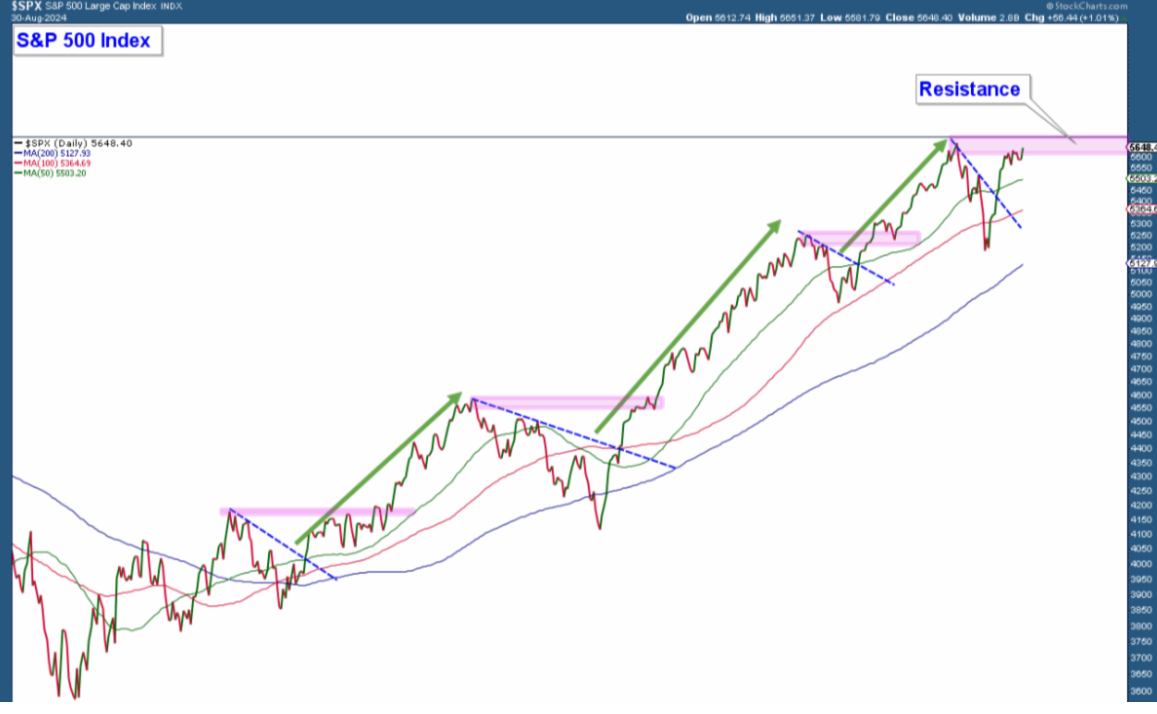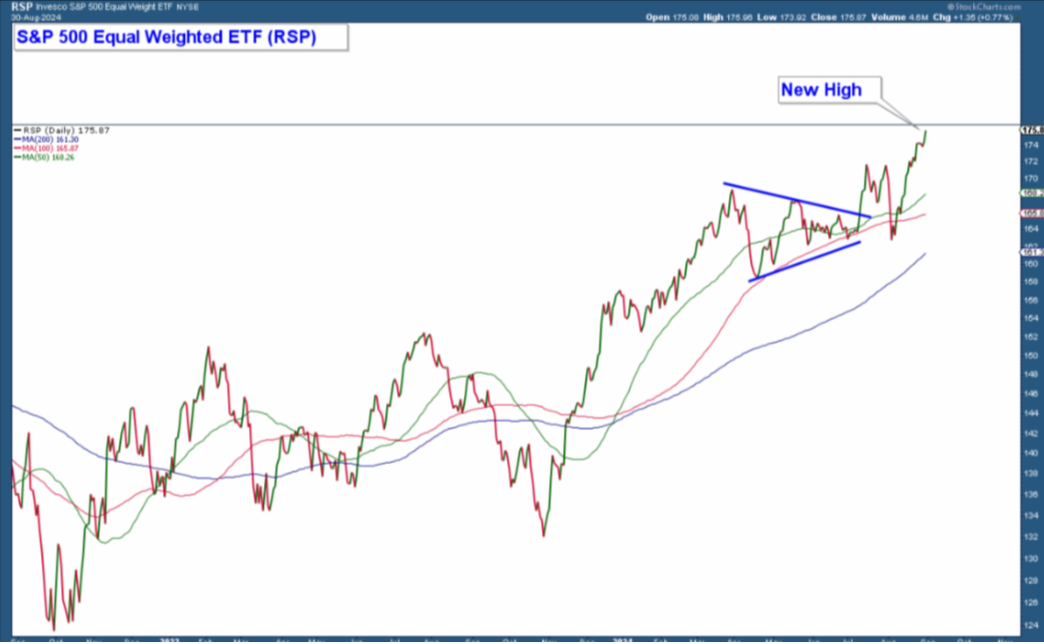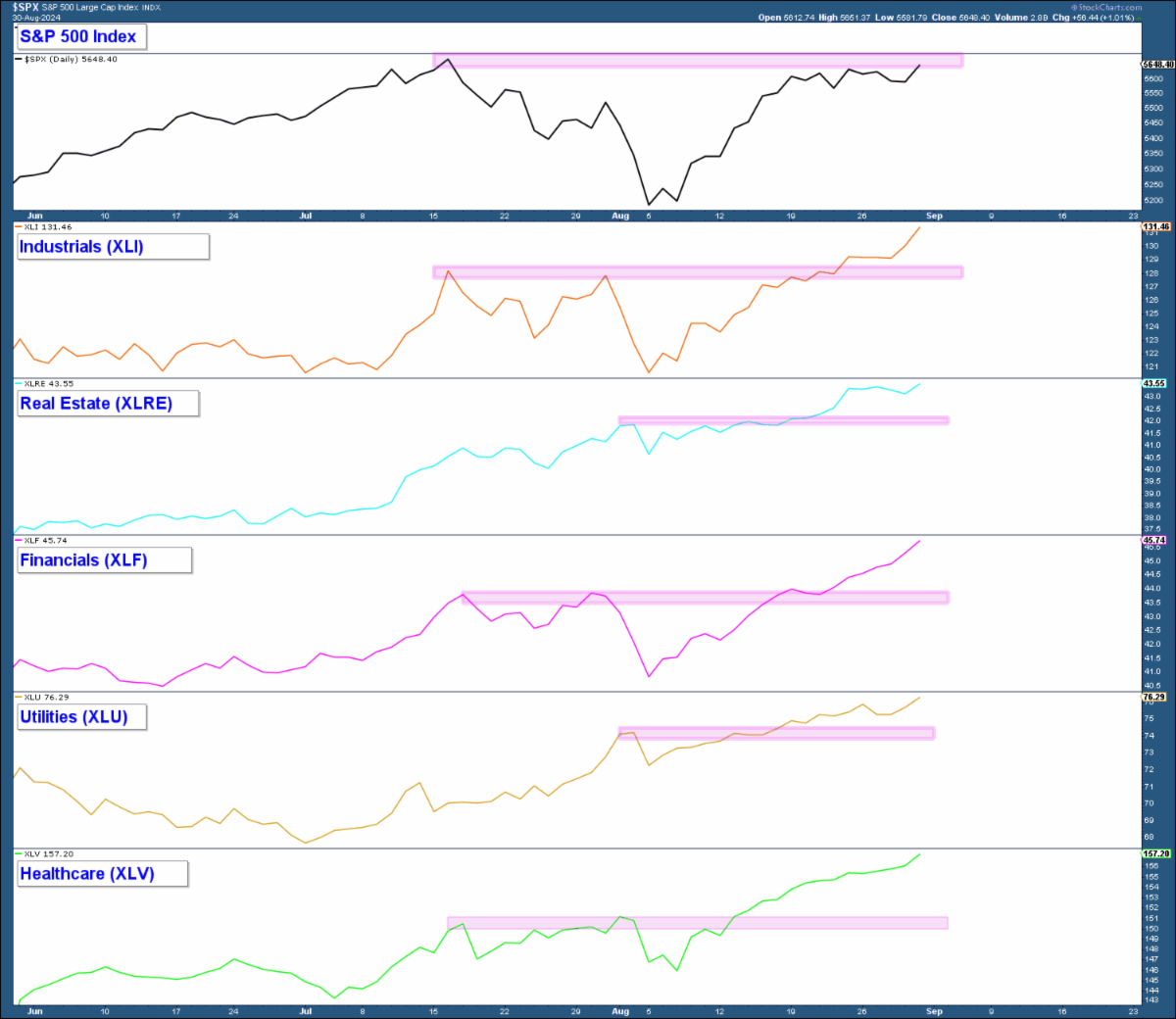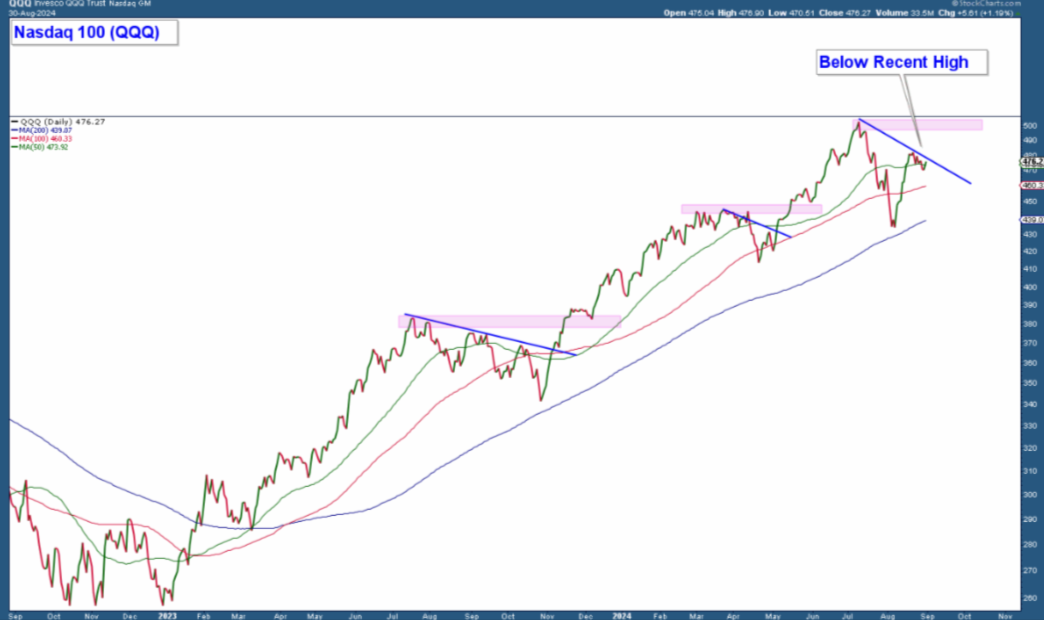As we move into September, the stock market's uptrend, which began in early 2023, continues to hold firm despite experiencing a series of routine corrections. In last month's newsletter, I discussed the most recent correction, which has since appeared to resolve itself, with the S&P 500 making a strong recovery.
The chart of the S&P 500 below highlights this recent market action, showing how the index has surged above multiple resistance levels and key moving averages. This strong advance suggests that the correction may be over, and the path of least resistance now appears to be upward, though the S&P 500 currently sits at a critical area of resistance—its previous high.

Beyond the S&P 500, other technical factors suggest the market is displaying bullish strength. Below I'll present charts that illustrate these points. Notably, the Invesco S&P 500 Equal Weight ETF (NYSE:RSP) has already advanced above its pre-correction high, signaling underlying market strength. Additionally, we're witnessing a healthy rotation out of technology stocks and into value sectors such as industrials, real estate, financials, utilities, and healthcare. This type of sector rotation is an essential sign of a robust bull market.
However, it's important to keep an eye on the Nasdaq 100, which is underperforming. Unlike the S&P 500, it remains below its previous high and has yet to break above its correction's downtrend line. While this isn't a major concern yet, the technology sector's performance, given its significant weighting in the S&P 500, will be crucial to monitor in the coming weeks.
Equal Weighted S&P 500: Breaking Through Resistance
The chart of the Equal Weighted S&P 500 below highlights a significant development: the index has advanced above its pre-correction high, effectively breaking through a key area of resistance. This move is an encouraging sign of market strength, as it suggests that the broader market is participating in the rally, not just the largest companies in the cap-weighted S&P 500.

This breakout adds confidence to the bullish thesis, indicating that the market's upward momentum is supported by a wide range of stocks, rather than being driven by just a few heavyweights. This broader participation is a positive signal that the current uptrend is likely to continue.
Sector Rotation: A Sign of Market Health
The chart below features the S&P 500 in the top panel, showing the index sitting right at a critical resistance level. What’s particularly noteworthy, however, is the strength we’re seeing in various key sectors, displayed in the panels below.
Industrials, real estate, financials, utilities, and healthcare have all advanced above their respective pre-correction highs, confirming the bullish sector rotation we highlighted earlier. This widespread sector strength reinforces the bullish outlook, indicating that multiple areas of the market are participating in the uptrend, further supporting the case for continued gains.

Nasdaq 100: Lagging Behind
The final chart focuses on the Nasdaq 100 ETF (QQQ), which presents a contrasting picture compared to the S&P 500 and other sectors. Unlike the broader market, the Nasdaq 100 has not advanced above its downtrend line and remains well below its pre-correction high. Currently, it’s sitting right at its 50-day moving average, a critical level to watch.
This underperformance highlights a key area of concern. While the overall market shows strength through sector rotation and broad-based gains, the lagging behavior of the Nasdaq 100 suggests that the technology sector, which is a significant component of the S&P 500, has yet to fully participate in the recovery. This divergence is something to monitor closely, as sustained weakness in this risk-on sector could weigh on the broader market’s ability to continue advancing.
Conclusion
In summary, the stock market's uptrend remains intact, with the S&P 500 recovering strongly from its recent correction and currently testing key resistance. The Equal Weighted S&P 500's breakout above its pre-correction high and the broad-based sector rotation into value stocks reinforce the bullish outlook. However, the underperformance of the Nasdaq 100, which remains below its downtrend line and key resistance levels, is a factor to watch closely.
Current Portfolio Allocation
In last month’s newsletter, I mentioned that I had reduced equity allocations in client accounts due to the market weakness we were experiencing at the time. However, as the market began to show signs of strength and the correction appeared to be over, I made significant adjustments.
Client accounts are now nearly fully invested. I’ve aggressively added equity positions as the market turned upward, capitalizing on the renewed bullish momentum. This positioning reflects my confidence in the current market environment.
